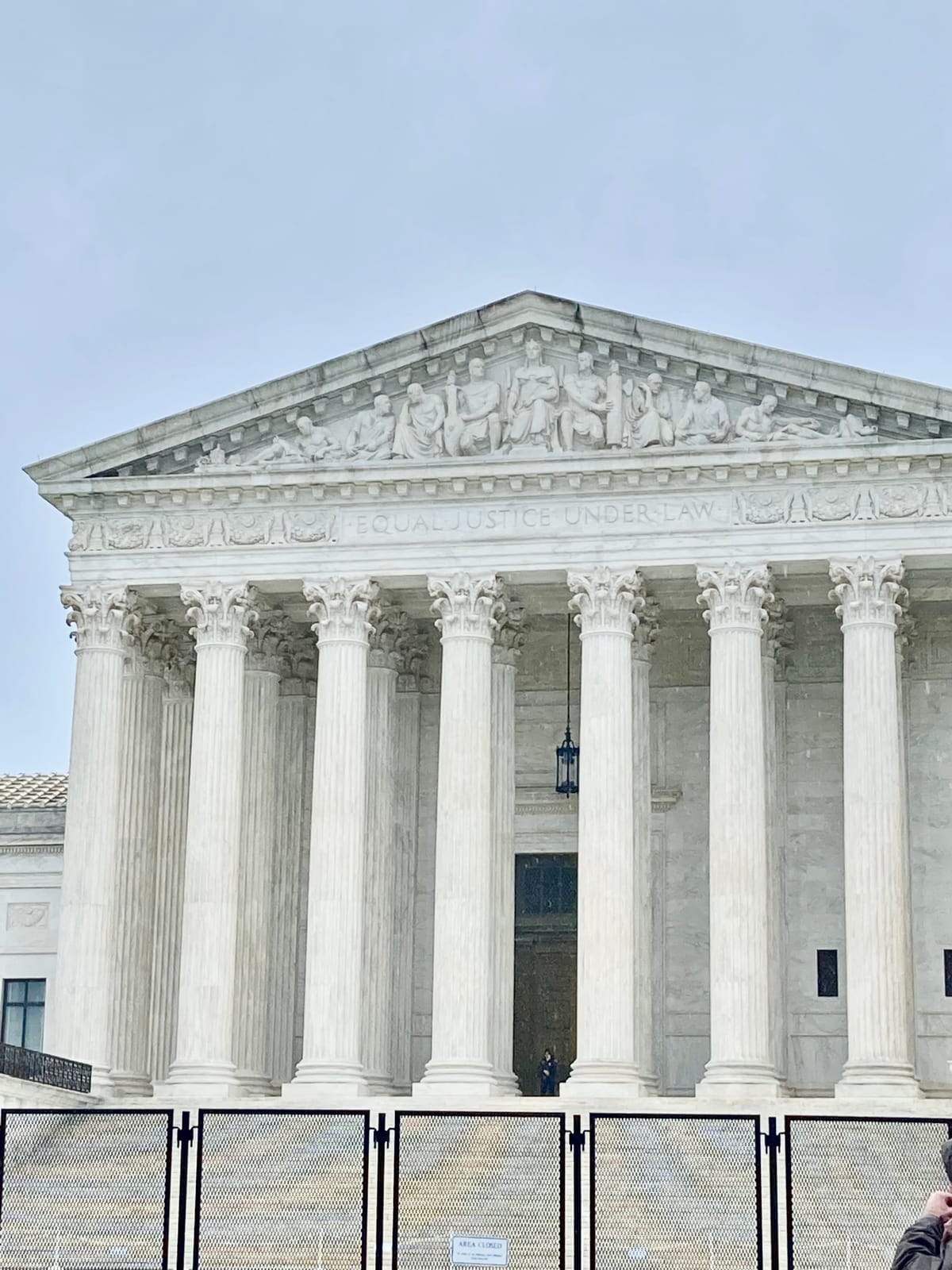What A Trump Second Term Signals For Climate Court Clashes

With Donald Trump’s victory in this year’s US presidential election, the courts will continue to be an important arena to watch in terms of efforts to both safeguard and weaken climate and environmental protection and to strive for accountability. At the federal level, environmental organizations are already gearing up for battle against the incoming administration, which is expected to once again cater to industrial polluters and undo existing rules to curb greenhouse gas emissions and other pollutants while expanding fossil fuel development. Aided by a judiciary that has trended much more politically conservative over the years, a second Trump term could potentially go even further in advancing its deregulatory agenda, as the policy blueprint known as Project 2025 states that its aim is a wholesale dismantling of the administrative state. Given this context, any advances in climate policy or climate accountability, experts say, will be limited to the subnational level. State courts could very well see even more activity in terms of climate litigation in the coming years.
Here is an overview of what the 2024 US election outcome may mean for climate law and litigation.
Challenging Administrative Actions and Deregulation
Similar to what played out under the first Trump administration, the government’s expected assault on climate and clean energy policy and environmental regulations is sure to see pushback in the courts. The Sierra Club, which filed more than 300 lawsuits against the first Trump administration, said in a statement that it is prepared to “fight again” against attacks on climate progress and clean air and water. Earthjustice, another major US environmental group, echoed that sentiment with its president Abigail Dillen saying: “We will see Donald Trump in court.”
So-called ‘blue’ states – those run by Democrats – are likely to join these efforts to challenge anti-environmental actions through the courts. Michael Gerrard, founder and faculty director of the Sabin Center for Climate Change Law, said we are likely to see litigation by these blue states as well as the environmental community challenging the Trump administration’s efforts to undo climate and environmental protections. Whether these challenges will succeed remains to be seen. As Daniel Farber, an environmental law professor at UC Berkeley, points out in a new blog post, “the Trump Administration had a terrible litigation record last time.” But, he added, “the judiciary is more conservative today and more skeptical of environmental regulation, which could make litigation more difficult.”
One thing to watch, Gerrard noted, is what happens to pending cases challenging environmental and climate-related actions that the incoming Trump administration will inherit as defendants. “There are several lawsuits pending against the Biden administration actions under the Clean Air Act and other laws, and it will be interesting to see whether the new administration tries to enter into settlements of those cases that basically agree to withdraw them,” Gerrard said.
Battles Against Big Oil
Another category of US climate litigation involves cases brought by state, local, and Tribal governments against fossil fuel companies over alleged deception regarding the climate impacts of their products and ongoing climate disinformation and greenwashing. Around 30 such cases have already been filed, and more are expected including a forthcoming lawsuit from the state of Michigan. But one case, brought by the Hawai’ian capital of Honolulu against major oil and gas companies, is currently pending before the US Supreme Court on a petition from industry defendants that may determine whether or not the whole crop of climate cases against Big Oil can advance under state law. A related petition from Alabama and other Republican-controlled states is also pending before the Court. That petition seeks permission to sue California and several other blue states to try to stop their climate lawsuits targeting the fossil fuel industry.
The Supreme Court has requested the Department of Justice, via the Solicitor General, to file briefs in both cases before the court decides whether to accept the petitions. The current Solicitor General under the Biden administration, Elizabeth Prelogar, has not yet responded to these requests. Pat Parenteau, emeritus professor of law at Vermont Law and Graduate School, said it is expected the Biden administration will “file its views on both cases before the clock runs out.” But Gerrard said the timing is unclear. “We don’t know whether she’ll respond during the lame duck period, or will wait until Trump comes in and her successor takes over,” he told Climate in the Courts. “But that’s one thing to watch. It would not be surprising if the Trump administration urged the Supreme Court to take the case, and to urge dismissal of the Honolulu case.”
Climate in the Courts reached out to the Department of Justice asking if the Solicitor General intends to submit the briefs before the Trump administration takes over in January 2025, but did not receive a response by press time.
If the Honolulu case and others like it are allowed to proceed, the oil companies could be forced to face trial over their alleged deception and role in promoting climate science denial. Many of the cases seek significant monetary damages, so the companies could potentially be on the hook to pay tens or hundreds of billions of dollars.
And as devastating climate impacts and associated costs mount, and the federal government under Trump exacerbates the damage, climate advocates say pursuing accountability through the courts takes on even more urgency.
“Under a Trump administration, with likely rollbacks in climate regulations, the courts will become even more central to addressing climate harms in the U.S. Scientific evidence—particularly attribution science and evidence of disinformation—will continue to be crucial for these efforts,” Delta Merner, head of the Science Hub for Climate Litigation at the Union of Concerned Scientists, said via email. “Attribution science allows us to understand emission sources and climate harms, while documentation of disinformation inform fraud claims, providing the courts with the evidence they need to hold companies accountable.”
Youth Climate Cases
Should the climate liability cases against fossil fuel companies move forward, they will be in state courts. Youth-led climate lawsuits against governments alleging constitutional violations are also expected to prioritize state level proceedings going forward. These cases, spearheaded by an Oregon-based nonprofit law firm called Our Children’s Trust, do not seek damages but they do try to hold government actors accountable for ongoing harms to children’s health and wellbeing stemming from actions or policies that worsen the climate crisis. While most of these youth cases have not succeeded, two cases – one in Montana and one in Hawai’i – did see breakthrough wins in the last two years. The Montana case won following a landmark trial in June 2023 (the ruling has since been appealed), while the Hawai’i case reached a first-of-its-kind settlement in June of this year. Our Children’s Trust hopes to build upon that momentum by bringing more cases in state courts around the country.
“We will take our wins in Red and Blue states in 2023 and 2024, and scale those wins to file more cases on behalf of more youth in more state courts across the U.S. to enforce their fundamental rights to life under state constitutions,” Our Children’s Trust co-executive directors Julia Olson and Mat dos Santos said in an email message to supporters on Wednesday responding to the US election outcome.

Still, this litigation may face an uphill battle. “The youth lawsuits might have some success but the problem is that only a few states have constitutional provisions protecting the environment,” Farber said. “And those lawsuits would have to be against state governments, not the federal government, so it wouldn't directly impact Trump Administration policies.”
“A Key Avenue for Accountability”
Climate litigation has proliferated in recent years and continues to grow, with the US remaining a hotspot for climate-related court battles. Under a US president who is a climate change denier and who promises to bring about an enormous setback on efforts to curb planet-warming emissions, the courts are a critical place to turn to try to safeguard fundamental rights and fight for justice and accountability, climate advocates say.
“In a landscape where federal policies may retreat, the courts could indeed remain one of the strongest engines for climate action,” Merner said.
“The recent election outcome deepens the challenge of achieving vital U.S. climate action. Now, more than ever, the rule of law safeguards democratic values, ensuring accountability, justice, and protection for all communities,” Danielle Lackey, US executive director at ClientEarth, a UK-based environmental law charity, told Climate in the Courts. “With climate policy unlikely to be prioritized under this new administration, the judicial branch becomes a key avenue for accountability.”


